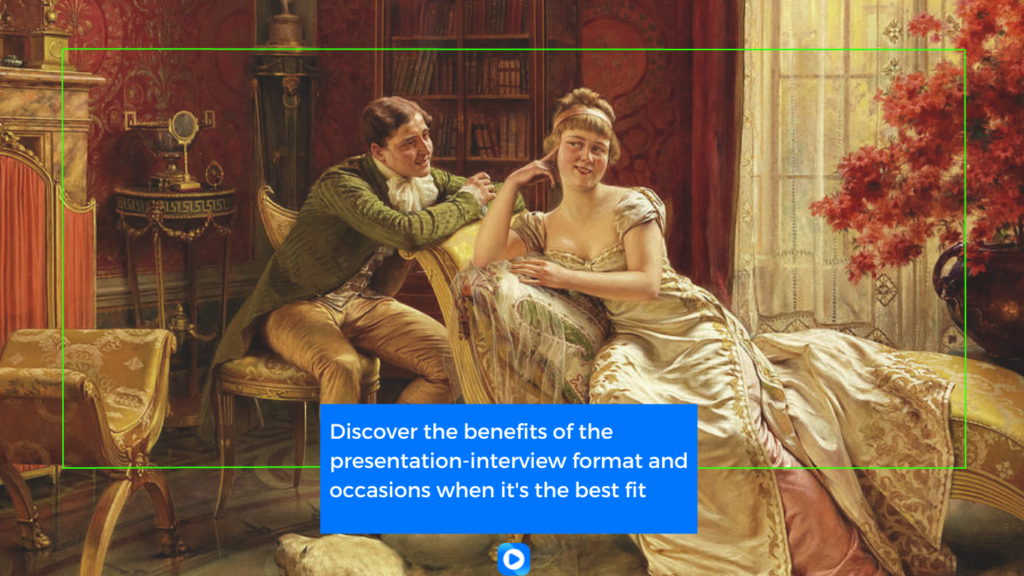Why large audiences and complex topics benefit from presentation-interviews
Let’s delve into a presentation format that can significantly impact your audience’s receptiveness toward you – the question & answer block.
In many online events, direct communication with the audience is often neglected or cut short, leaving no room for questions. You can recall many presentations ending with something like “Is everything clear? No questions? Was a pleasure to meet you all, byyye!”. And, without allowing the audience to collect their thoughts and react, the speaker hurries to disconnect.
This behavior, utterly illogical for a lead catcher, is easy to explain: countless presenters experience glossophobia – a fear of public speaking. According to various sources, 70 to 90% of people on Earth suffer from it more or less intensely. In this sense, the question/answer block is a glossophobia’s nightmare, as it represents every opportunity for an event to go wrong.
Therefore, while intellectually understanding the benefits of direct communication with the audience, many presenters instinctively seek to avoid it. So, the mere thought of a Q&A session could leave them terrified and anxious.
But did you know that, ironically, about 90% of visitors to presentations want to take an active part in them? They expect an opportunity to ask questions, or even a few. It is when the presentation-interview format comes into play, and we strongly recommend taking into account this powerful tool for engaging with your audience.
So, how does it work? Simple and elegant. In the introduction, you briefly state your topic and then spend the rest of the time answering questions, comments, and objections. By doing so, you’ll capture your audience’s interest, generate leads, and even increase sales.
When is the presentation-interview format most appropriate? Consider two factors.
First, the larger the audience, the more effective this format will be.
Second, the more complex and diverse your subject, the more questions it will likely generate. For example, a new penknife design may generate a few questions, but a startup offering a revolutionary new technology exploring life on Saturn will pique people’s curiosity.
The presentation-interview format also benefits cultural events such as music albums, literary works, or exhibitions. In these cases, direct communication between the authors and the audience is a fantastic way to engage with your audience.
Of course, preparation is the key. Take the time to rehearse answers to expected questions and arm yourself with illustrative materials to keep your audience engaged. Captivating attention slides and video clips can go a long way in preventing your presentation from becoming stale.
Remembering that a presentation interview doesn’t have to be a solo performance is essential. A team of several speakers can distribute the workload evenly, support each other in difficult situations, and reduce the impact of glossophobia, which we’ve mentioned above.
Summary
- Presentation-interview is an effective way to engage your audience and generate leads and sales, as the audience is usually eager to participate in the event actively.
- It works best for larger audiences and complex, diverse topics though it takes a lot to prepare
- Feel free to enlist a team of speakers to share the workload and boost your confidence.
Remember, for the best live and recorded online presentations, turn to ROI4Presenter.
Good luck, and here’s to successful presentations and high income!
---------
Source ROI4Presenter Blog






Leave a Comment